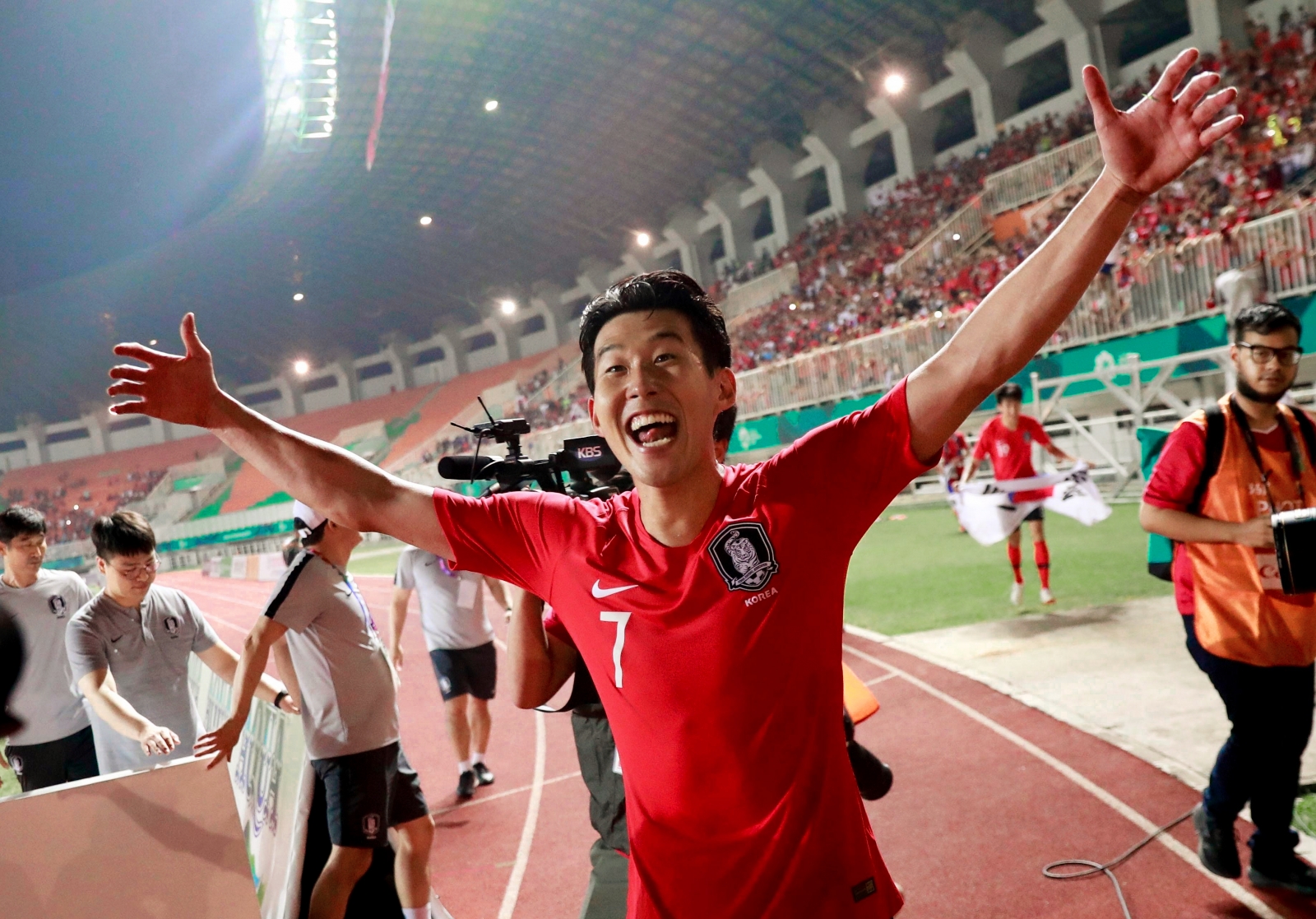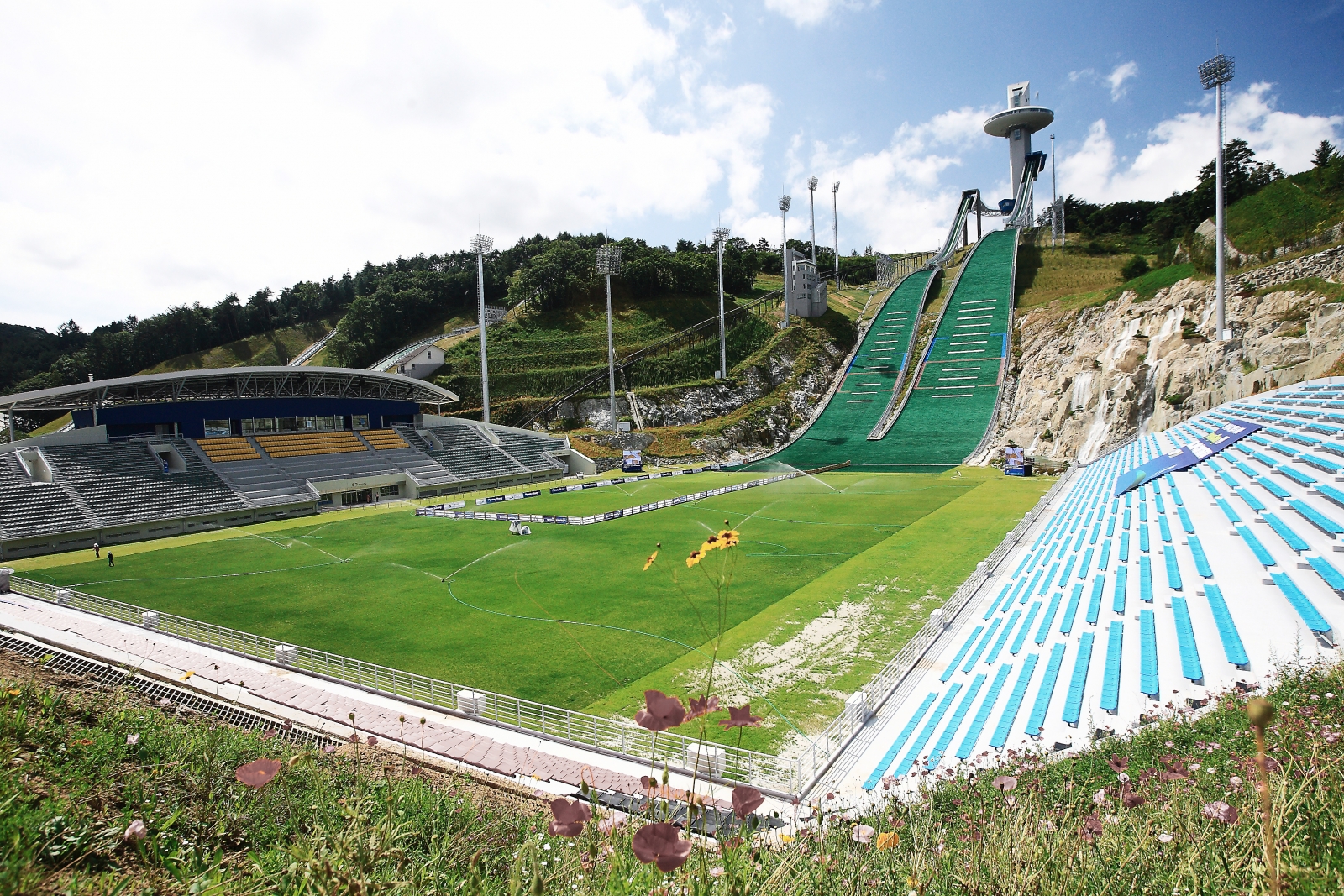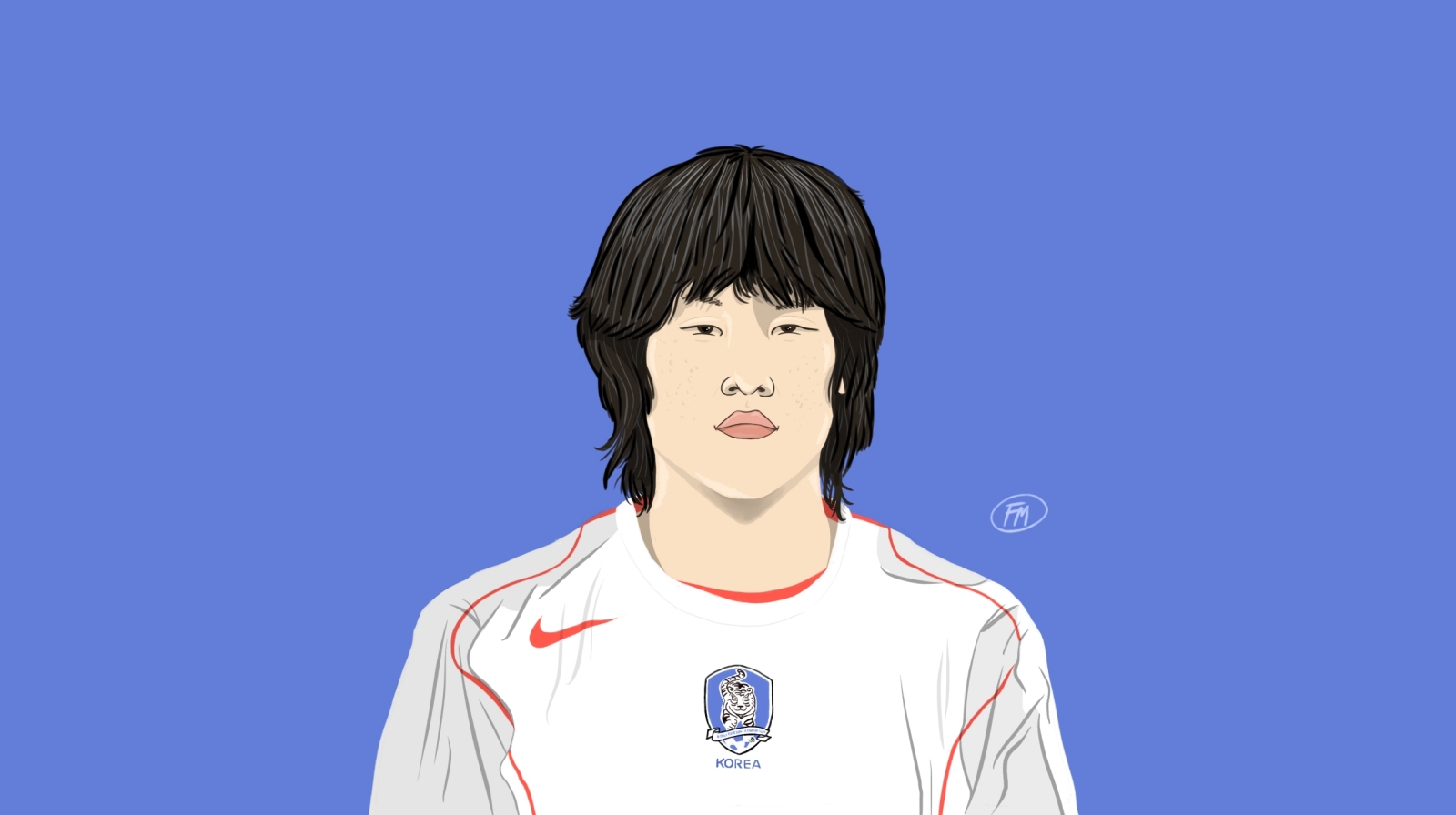
The group of middle-aged men standing and sitting around me on the subway were having a heated discussion. To the untrained ear, it might have sounded like an argument, there are plenty of those on Seoul’s subway line two. But I can’t imagine many of those arguments have been on the same subject as this one. The men were talking about an under-23 match currently taking place in China. A match not even involving South Korea, but between Uzbekistan and Vietnam that was approaching extra time with the two teams level.
Vietnam would lose that match 2-1, but their manager, the South Korean Park Hang-seo, would receive an open-bus parade around Hanoi with his team of heroes cheered on by tens of thousands of fans. Kim Bong-gil, the manager of the previous team to lose to Uzbekistan, would be out of work a few weeks later.
Kim Bong-gil’s South Korea crashed out of that tournament in the semi-finals, letting the match slip away from them after one of their players picked up a second yellow card for a foul on the Uzbek goalkeeper. The final score was 4-1, but had the pass that led to that crucial foul had been slightly lighter, Korea would have gone 2-1 up rather than one man down. Such are the margins in football.
But the young Taeguk Warriors couldn’t have any complaints, they had been the second best team in this match and hadn’t looked great all tournament. It was a worry because, in just a few months’ time, there was another under-23 tournament. One which could change the career trajectory of the players in the South Korean side.
When the KFA was choosing Kim Bong-gil’s replacement, there was one key question on the minds of the selection committee. Who will give South Korea the best chance of winning the 2018 Asian Games in Indonesia? Committee chairman Kim Pan-gon knows what it takes to lead an international team in high-pressure games. Just a few months earlier, he had been coach of Hong Kong.
He has big plans for reforming Korean football in the long term and set about making the recruitment process more systematic, setting out a series of requirements that applicants must have, including having some trophies behind them to prove their credentials. Choosing a winner was vital; it’s all very good improving and developing a team, but all that would mean nothing if South Korea ended up coming back from Jakarta without a gold medal.
Footballers usually peak in their late 20s, but many South Koreans spend these years on their military service. The best South Korean players are better off than the average Korean male in that they can still do what they love while on duty, playing football in the domestic K League for army team Sangju Sangmu or police side Asan Mugunghwa.
But for the national team to improve, it needs its players reaching their full potential, and that means playing under the best coaches in the world and playing against the best players in Europe’s top leagues. For European clubs, signing a young player from the other side of the world is risky and complicated. But with military duty threatening to take away Korean players in their prime, the reward side of the risk-reward ratio is greatly diminished.
Korean football is full of players who missed out on a career in Europe because military duty got in the way. Players like former Asian Player of the Year Lee Keun-ho, who scored for South Korea in the 2014 World Cup and celebrated, like all players on the army team do, with a salute. The bleach-blonde hair he sported while helping Ulsan win the Asian Champions’ League was replaced with a buzz-cut, but he never did play in Europe.

Read | A hot night in Java: how Iraq won the Asian Cup while war raged at home
Tottenham Hotspur forward Son Heung-min may not of even had the luxury of playing for Sangju Sangmu. Son didn’t graduate from high school so isn’t eligible for the army-proper. Instead, without some workaround, he would likely have been confined to a desk job for two years, turning out on the weekends for a team in Korea’s fourth tier, playing on artificial pitches and thousand-seater civil sports complexes.
There’s one way out of this predicament that doesn’t end up with South Korean players being ostracised from their country: win a medal. Not just any medal, though, it either has to be an Olympic medal or a gold at the Asian Games. That’s why the semi-finals in the Under-23 Asian Championships in January was nowhere near good enough for South Korea. Only winning is good enough.
But winning gold is no easy matter, even with superstars like Son to call upon. South Korea managed gold last time out in 2014, scoring in the last minute of extra time to beat North Korea in the final in the port city of Incheon. But their last gold before then was back in 1986, and their last gold outside of Korea came back in 1978 in Bangkok.
The man charged with winning South Korea’s first gold Asian Games gold medal on foreign soil in 40 years was 58-year-old Kim Hak-beom, who had previously won the K League and Korean FA Cup with Seongnam. He started work even before he was interviewed for the job in late February, building up his understanding of Korea’s under-23 players so that he could hit the ground running and make the most of the five months he had until the tournament began.
A few weeks after his appointment, Kim took his first training camp with the under-23s, with the players saying his training sessions were “totally different from the past”. Kim’s team were praised for their attractive passing play, and worries about Kim being old-school in his man-management seemed to disappear, with players saying the atmosphere was warmer than before.
The first real criticism Kim received was when he selected his squad for the Games. Each team is allowed three over-age players, although many of the teams didn’t take that option. The games fall outside of the FIFA calendar and clubs aren’t obligated to send their players. A wise use of those three slots could give South Korea the edge.
One slot went to Son Heung-min. French Ligue 1 side Dijon’s Kwon Chang-hoon looked like he would fill one of the other spots until he ruptured his Achilles tendon on the final day of the season, ruling him out of the World Cup, the Asian Games, and the best part of the 2018/19 season. The second slot instead went to national team goalkeeper Cho Hyun-woo.
Cho had an outstanding World Cup, winning plaudits around the globe for some of the saves he made against Sweden, Mexico and Germany. Unlike many Korean goalkeepers, who have a tendency to punch the ball, Cho’s catching ability has helped relieve the pressure for his teammates time and time again.
The K League’s ‘no foreign goalkeeper’ rule means that the two other main choices for under-23 goalkeeper were highly rated and already had first team experience, but if South Korea conceded first then their opposition would put 11 men behind the ball and play for the 1-0 and Korea would be out, so having the best possible goalkeeper is a must, even if he takes up one of the coveted over-age spots.

Read | The K-League club with a ski jump for a stadium
The third spot was the most controversial. Kim Hak-beom selected Gamba Osaka striker Hwang Ui-jo who he knew from his days as Seongnam manager. Hwang burst onto the scene with 15 goals in 2015, earning himself a call-up to the national team, but he struggled in the seasons after that, only scoring once in 10 games for the national team. Many online commentators claimed he was picked over whoever their favourite player was due to his links to Kim and argued that Hwang didn’t deserve a place in the squad, despite his return to form this season at Gamba Osaka where he has scored nearly once every two games.
Several fan favourites were also left out of Kim’s final squad, including Valencia’s Lee Kang-in and Girona’s Baek Sung-ho. But with games coming almost every two days in hot and humid conditions, every player in the squad would have to play their part. And with so much at stake, there were no free rides for anyone, no matter how much potential they may have in the future.
South Korea were placed in Group E, along with Malaysia, Bahrain and Kyrgyzstan. Then they were hit with a hammer-blow. Somehow, the United Arab Emirates and Palestine hadn’t been included in the original draw. There was another draw and Palestine were placed in Group A, while the UAE were put in Group E. South Korea would have to play one more energy-sapping game, and it would be against one of Asia’s best teams, the side that knocked them out of the Asian Games in 2010.
To win tournaments, you need a bit of luck on your side, and South Korea got a massive slice of luck when Iraq withdrew from the tournament after controversy over whether some of their national team players in a different tournament were actually the age they claimed to be. The UAE were moved into Group C to take Iraq’s place and South Korea’s group was back as it had been originally.
South Korea came out all guns blazing against Bahrain in their opening match. Hwang Ui-jo showed his critics why he was included in the squad with a first-half hat-trick as the Koreans pressed Bahrain high up the pitch. Korea added two more before the break, but dropped off a bit in the second half, with Kim later claiming that he wanted Bahrain to attack so that he could work on his side’s counter-attacking game. In the end, Cho Hyun-woo had to make some impressive saves to keep a clean sheet. Red Bull Salzburg striker Hwang Hee-chan, who would agree to join Hamburg on loan after the tournament, added a sixth goal in injury time to put South Korea in a strong position to advance.
Their next match against Malaysia didn’t go quite to plan. Kim heavily rotated his side and the new goalkeeper, Jeonbuk Motors’ Song Bum-keun, collided with a defender when catching a hopeful long ball, falling hard and dropping the ball to allow Muhammed Rashid to tap it into an empty net and give Malaysia an early lead.
South Korea had wayward shot after wayward shot but couldn’t find the back of the net, then, right on half-time, Rashid added a second goal with pretty much Malaysia’s first real attack of the game. Son Heung-min and Hellas Verona’s hugely popular young star Lee Seung-woo, who was the great future hope of Korean football when he played for Barcelona’s youth team, were called off the bench to try and rescue the match, and despite Hwang’s late consolation goal, South Korea lost 2-1.
That result meant South Korea were unable to win Group E, and of course led to a meltdown on social media, with goalkeeper and defender receiving the brunt of the criticism. But despite the result, Korea were still very much in the tournament; as long as Bahrain didn’t win, South Korea could still go through even if they lost their final match by a 15 goal swing.
As it was, Bahrain did get a surprise win against Malaysia while South Korea huffed and puffed to a 1-0 win over Kyrgyzstan. Son scored the only goal of the game, volleying home a corner to open his account at the tournament, but despite a better goal difference, South Korea finished behind Malaysia and ended up on the difficult side of the draw. And based on their last two performances, the gold medal looked a long way away.
Hwang scored his fifth goal of the tournament and Lee Seung-woo scored a fantastic individual goal to give South Korea a 2-0 win against Iran in the round of 16. But waiting for them in the quarter-finals were arguably the toughest team in the competition, Uzbekistan, who had scored 13 goals in four games so far this tournament and conceded none. They were also the side who dumped South Korea out of the under-23 Asian Championship back in January. Korea would have to face them without goalkeeper Cho Hyun-woo, who had picked up a knee injury against Iran.

Read | Park Ji-sung: the first nuclear-powered South Korean
That man, Hwang Ui-jo, opened the scoring for South Korea within the first five minutes. Uzbekistan pulled one back but Hwang scored again with a 20-yard screamer to give Korea a 2-1 lead at the break. Then it all went wrong. A cross to the far post found an unmarked Ikromjon Alibaev who slotted the ball between Song Bum-keun’s legs to equalise. South Korea then lost the ball in midfield and Alibaev’s long-range shot took a wicked deflection of defender Hwang Hyun-soo’s boot to send Song the wrong way and put Uzbekistan in front.
South Korea equalised to send the game to extra time, during which Uzbekistan lost Alibaev to a second yellow card, but they couldn’t find a breakthrough until Hwang Ui-jo was brought down in the box in the 118th minute. Hwang Hee-chan, who had been having a poor game so far, took the ball off Son Heung-min and told him he was feeling confident. Son was not, he couldn’t even watch, choosing to stand 40 yards out facing the other way rather than be ready to follow up should Hwang Hee-chan miss. Hwang stepped up and shot to the goalkeeper’s left. He went the right way and got a hand to it but couldn’t keep it out. Hwang ran to the touchline, took off his shirt, and showed the number nine on the back of his jersey to the cameras.
South Korea’s semi-final against Park Hang-seo’s Vietnam was more straightforward with a Lee Seung-woo double and Hwang Ui-jo’s ninth goal of the tournament giving them a 3-1 win and a guarantee of at least a silver medal. Vietnam went on to lose the bronze-medal match to the UAE, who Portugaled their way to a medal, winning just one match – against East Timor – in normal time all tournament.
But for South Korea, silver would be a failure, and to get the gold, they would have to win the final against arch-rivals Japan.
If there’s one side that South Korea want to beat, its Japan. A history full of invasions and atrocities by Japan makes the match more than just a local rivalry. On the same day in the Asian Games, South Korea beat Japan in its other national team sport, baseball. Now it was the footballers turn. But Japan had other ideas.
The young Japanese side was selected with the 2020 Tokyo Olympics in mind, and reached the final through a series of narrow wins after finishing second in their group. Japan’s football infrastructure is far more developed than anywhere else in Asia, South Korea included, and their under-23 squad is full of talent. Exhaustion and pressure were also starting to take their toll on South Korea, who struggled to create quality chances.
The game finished 0-0 and went to extra time. Then, in the 93rd minute, came the moment all of South Korea was waiting for. Kim Min-jae played a ball through to Son Heung-min who cut inside his defender looking to shoot. His touch was slightly heavy but had lined the ball up perfectly for Lee Seung-woo who ran in ahead of Son and smashed the ball into the top corner of the net to give South Korea the vital breakthrough.
Hwang Hee-chan added a second with a mighty leap and powerful header. Japan pulled one back through Ueda Ayase but South Korea held on for the last few minutes. When the final whistle blew, somehow they still had the energy to run to the crowd, waving the South Korean flag.
Kim Hak-beom claimed he didn’t talk about military exemption with the players at all during the tournament, and just focused on winning each match as it came. When they reached the final, he told his players that the South Korean flag had to be raised higher than the Japanese flag during the medal ceremony, no matter what.
But the exemption that the gold medal brings could give a few players the chance to go to Europe and make the most of their careers. Some would have hoped that their Asian Games performances alerted European coaches. Hwang In-beom, Kim Moon-hwan and Hwang Ui-jo have already caught the eye of Paulo Bento, the new South Korean head coach, who called them up for his first friendly matches against Costa Rica and Chile. They’ve been given their chance – now they have to take it.
By Steve Price @kleaguefootball
